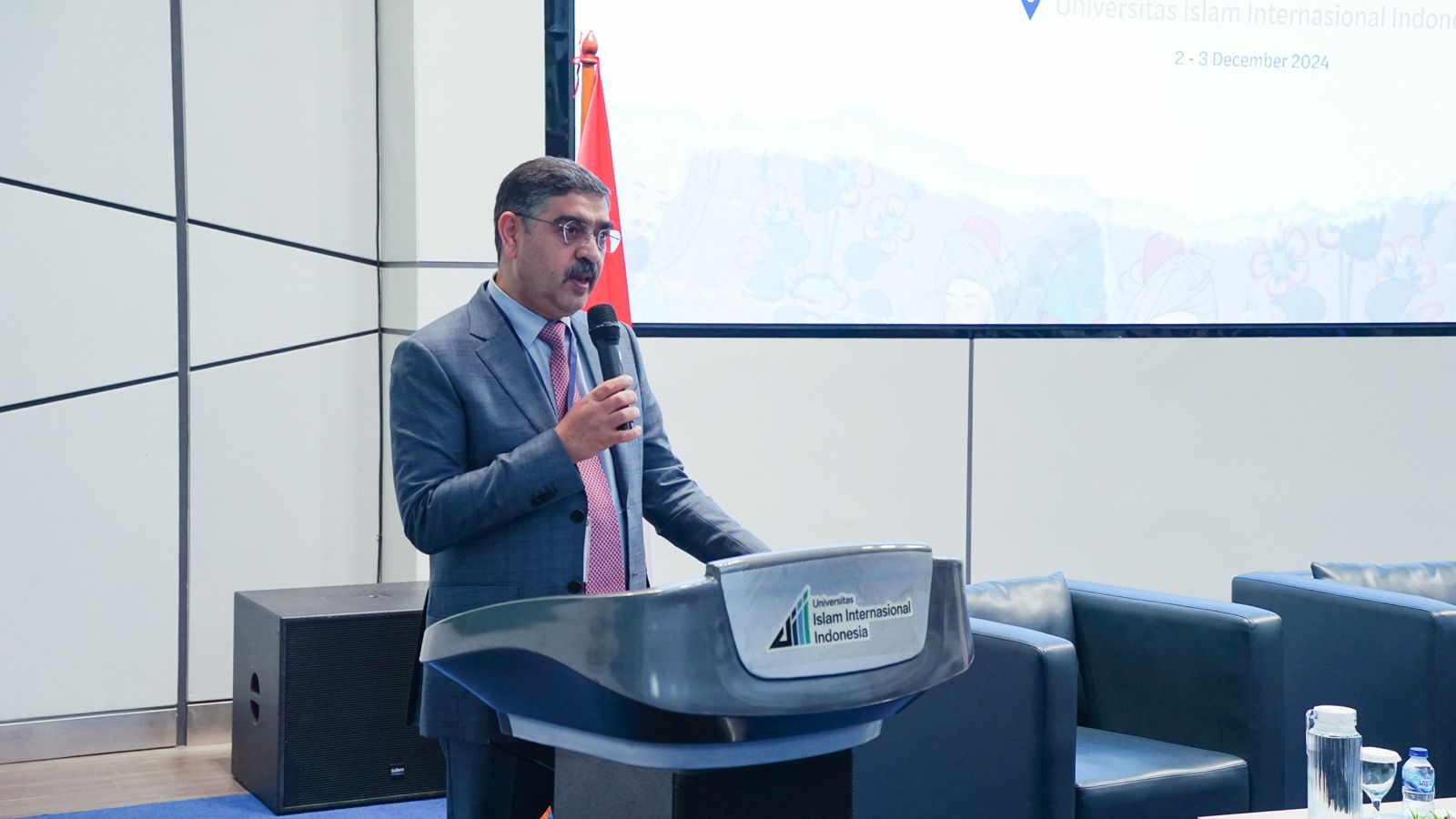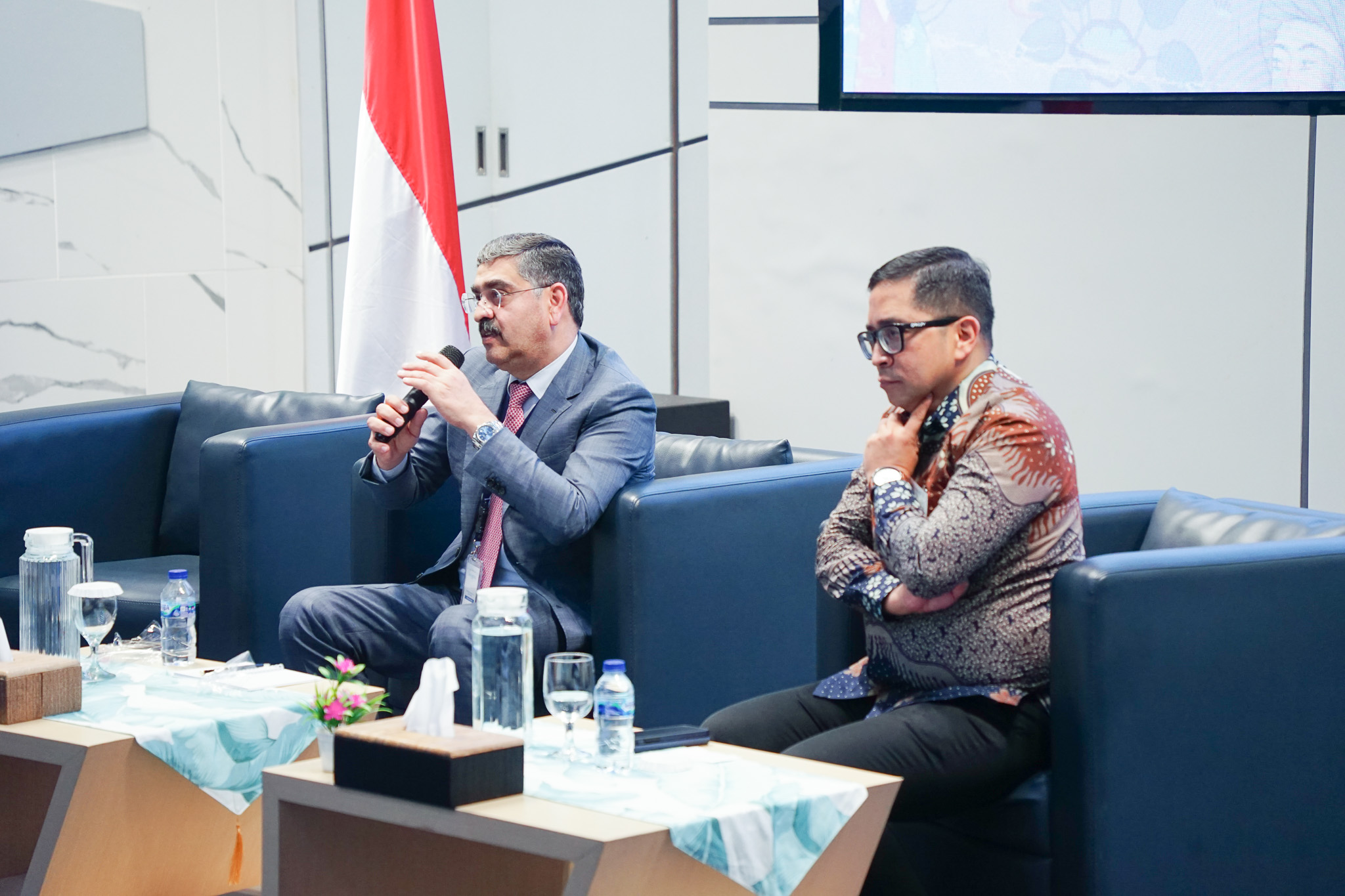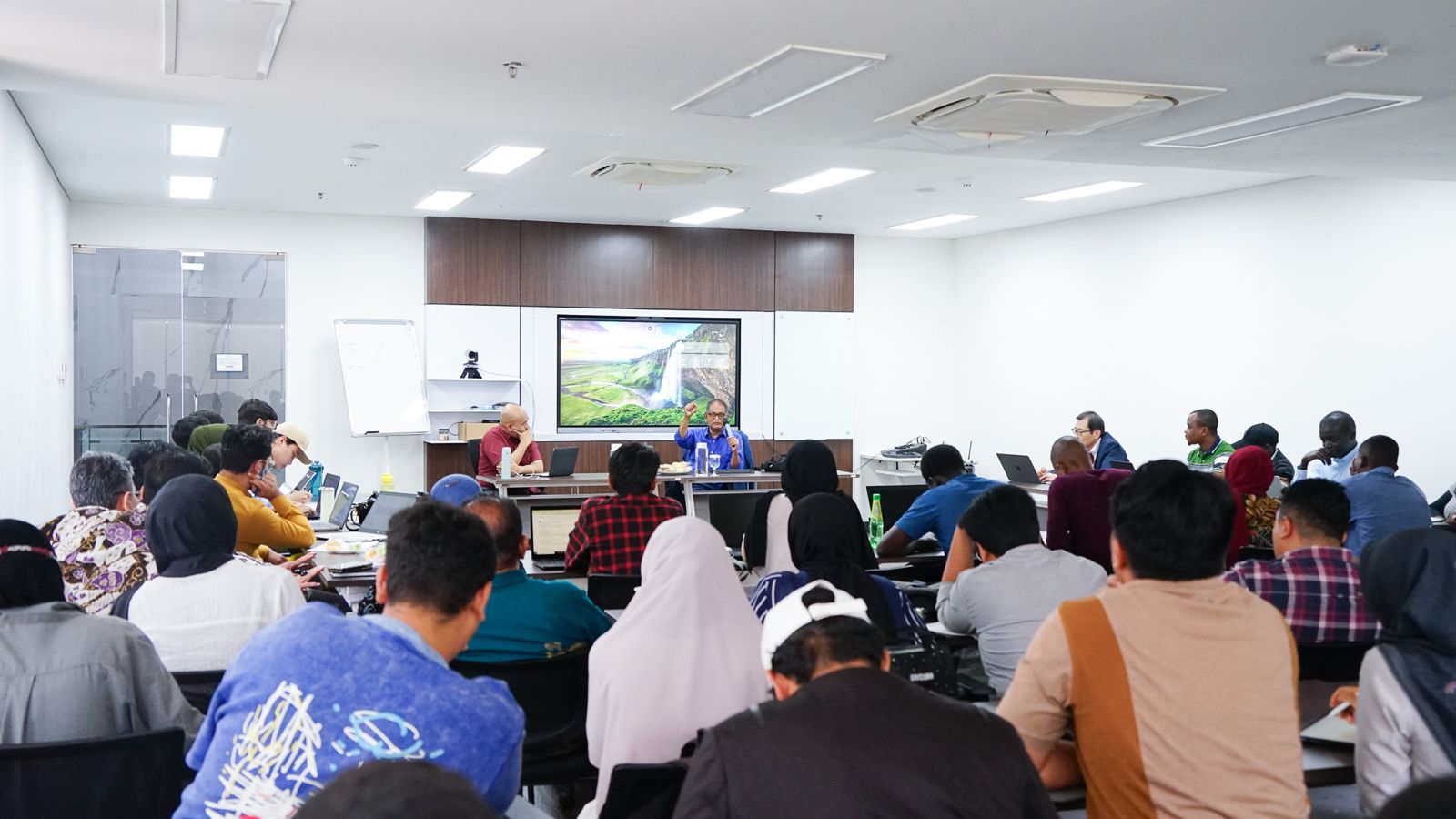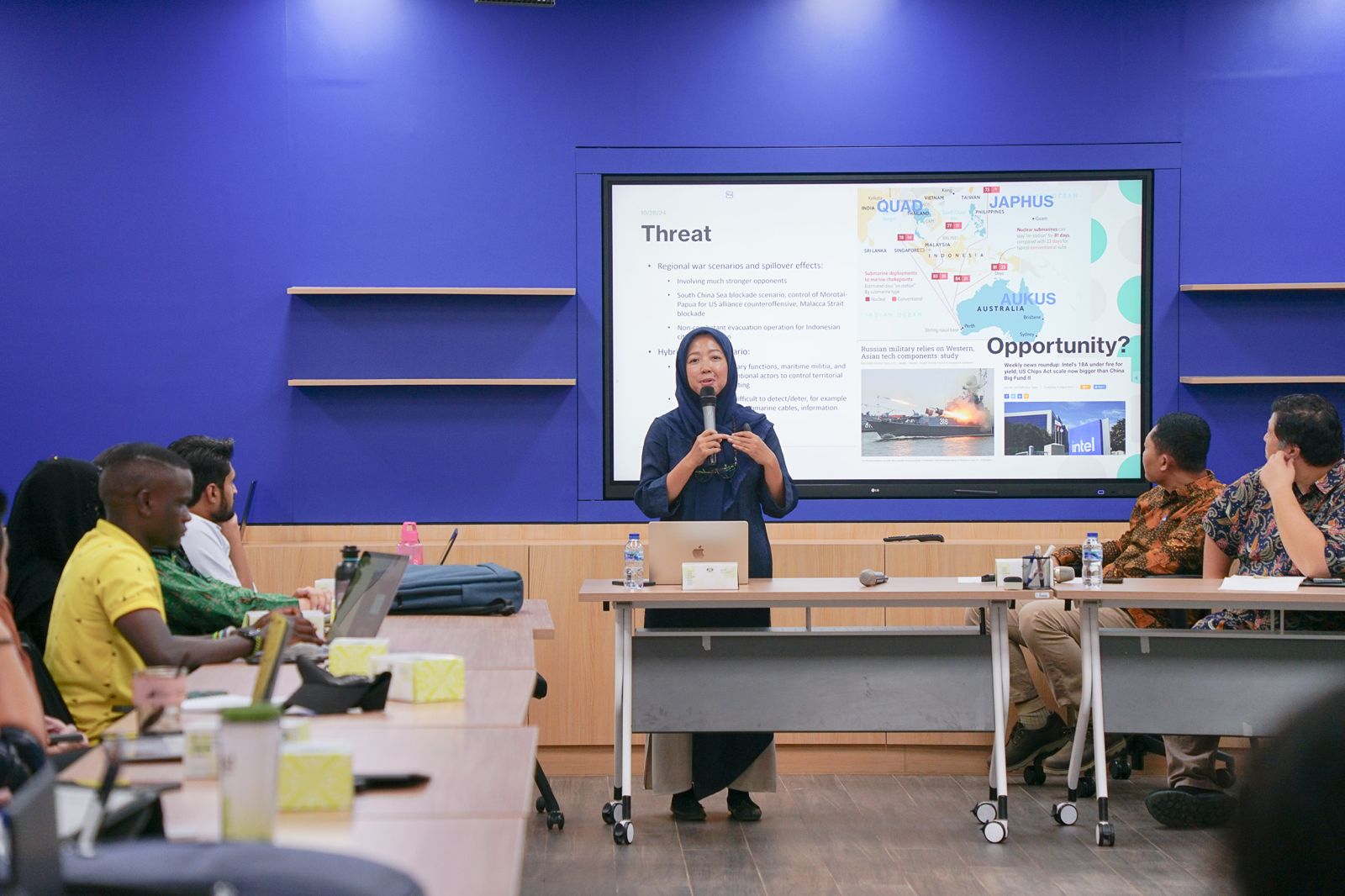‘Nation-States as Guardians of Social Order’: Pakistani Senator
December 03, 2024Contributor: Supriyono | Editor: Dadi Darmadi | Photo: Sarah Permatasari

Senator Anwaar-ul-Haq Kakar, a Member of the Senate of Pakistan and the country’s longest-serving Caretaker Prime Minister, delivered a compelling keynote speech at the 3rd Symposium on Muslim Politics in World Society, held by UIII Faculty of Social Sciences (FOSS) on December 2–3, 2024. The symposium, themed “Religious Diversity in an Age of Resurgent Nationalisms, Technological Polarisation, and State Power,” was organized in collaboration with the University of Western Australia’s Center of Muslim States and Societies.
In his address, Senator Kakar emphasized the critical role of nation-states in upholding social order, describing it as one of the most sacred and indispensable human endeavors. Referencing Quranic verses about the creation of Adam, Senator Kakar explained that violence or chaos has indeed been part of human nature, using it to highlight the enduring need for structures that prevent disorder.
“I'm a very conservative believer that one of the most sacred of human activity is social order. If you do not have social order, and if you don't sanctify social order, you are vulnerable to chaos,” he stated. However, the critical question to ask: ‘In a world of 8 billion people today, who would do tangible day to day responsibility for social order?’
Answering this question, Senator Kakar argued that nation states presume responsibility for this. “It becomes the legitimate authority; the ideas of serenity and legitimacy are all interconnected, and collectively, society surrenders to this concept,” he said.

While he refrained from making definitive predictions about the future of governance, Senator Kakar stressed that the nation-state prevails as the most appropriate and reasonable mechanism to sustain order and justice in contemporary society. “This remains an appropriate and reasonable answer to maintain social order and ensure service delivery, making the economic life of its citizenry reasonable, acceptable, and equitable."
Senator Kakar’s insights resonated deeply with the symposium’s central themes, offering a nuanced perspective on the interplay of religion, governance, and global challenges. His emphasis on the enduring relevance of the nation-state provided a thought-provoking foundation for the discussions that followed, enriching the event's dialogues on the pressing topic.
This year’s symposium gathered 32 scholars and policymakers from around the world exploring the intersections of religion, nationalism, and technological polarization. The Symposium on Muslim Politics in World Society served as a platform for interdisciplinary dialogue on pressing global issues, offering insights into how states can navigate the complexities of a diverse and increasingly interconnected world.
- UIII Extends Application Deadline for 2025 International Admissions
- What Does Eid al-Fitr Mean for the UIII Academic Community?
- UIII PhD Scholar Ararat Kostanian Delivers Lecture at Armenia's Yerevan State University
- Swedish Ambassador to Indonesia Applauds UIII’s Vision, Explores Future Collaboration
- Depok Mayor Supports UIII as the Green Lung of Depok and Beyond
- Depok Mayor Pledges to Build Performance Hall at UIII
- New Parking Facility Launched, Part of UIII-Sentra Medika Hospital Partnership
- Yogyakarta’s UII Won 1st FisFastFest’s Clash of Campuses
- Vice Minister of Religious Affairs Praises UIII as a Global Hub for Islamic Education
- Hurray!! UIII Wins Football Championship


